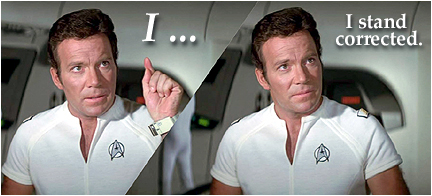When Gene Roddenberry was given The Next Generation to do with as he willed, a lot of bad blood had distanced him from TOS, particularly in movie form. Of all the TREK movie directors, Leonard Nimoy, perhaps, gave him the most respect, but GR was disrespected by the moviemakers and wisely, perhaps, chose to give STAR TREK a soft reboot, to further distance it from what was happening on the Classic Series side of town. So doing, unfortunately, meant that the very cool idea in TOS that Man reached for the stars of his own accord, simply because it was in his nature to do so was given a reboot, as well. I love TNG with a zealot's passion, but the theme that it brings to the table of Man needing a hand-hold by Outer Space Aliens to know how to start behaving himself and becoming a productive member of a broader Galactic Culture is risible.
I never cared for it, never asked for it, but it was part of the package with STAR TREK's new direction. It wasn't so heavily featured that it was, you know, in your face, all the time, but when it reared its ugly head, I have to say ... I found it to be most unwelcome! Are there aliens out there, in the Universe? I don't know ... Life is out there, certainly, but beyond that, I wouldn't care to hazard a guess. And if we are to encounter it, I'd rather we found it, rather than it finding us. But whichever theme you prefer, it still sets the same table, where STAR TREK continues to be allowed to entertain with stories and adventures that are memorable and even, on occasion, meaningful. So, this alteration is not that big of a deal, in itself. It just makes The Human Adventure's beginning look a little more passive and a lot more submissive than, maybe, it might've seemed, before.


